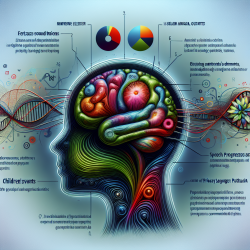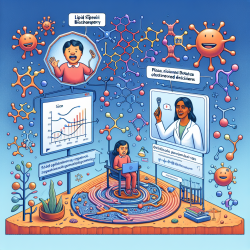In today's dynamic workforce landscape, finding the right career path can be a daunting task for many individuals. This is particularly true for those with unique challenges or special needs. However, vocational assessments offer a beacon of hope, providing invaluable insights into an individual's strengths, preferences, and capabilities. These assessments serve as a roadmap for career development, helping to match skills with suitable employment opportunities.
Understanding Vocational Assessments
A vocational assessment is a comprehensive process that evaluates an individual's work-related skills and interests. It systematically uses real or simulated work tasks to assess vocational aptitudes and explore career options. This process incorporates medical, psychological, social, educational, cultural, and economic data to ensure a holistic evaluation.
The Key Components of Vocational Assessments
- Vocational Evaluation: Utilizes real or simulated work as the focal point for assessing vocational development.
- Career Interest Testing: Matches personal interests with potential career paths through inventories and tests.
- Aptitude Testing: Assesses the ability or potential to perform specific activities.
- Achievement Testing: Evaluates knowledge and skills acquired through learning.
- Situational Assessment: Uses real work settings to evaluate vocational aptitude and skill acquisition.
- Psychological Testing: Provides insights into personality, intelligence, and learning styles.
The Impact of Vocational Assessments on Career Development
The power of vocational assessments lies in their ability to identify both hard and soft skills that are crucial for career success. Hard skills refer to specific abilities that can be measured and demonstrated, such as technical proficiency or manual dexterity. In contrast, soft skills encompass behaviors and traits like communication and teamwork that enhance workplace interactions.
An essential aspect of vocational assessments is their focus on transferable skills—qualities that can be applied across different jobs. By identifying these skills, individuals gain flexibility in their career choices and increase their employability in various fields.
The Role of Informal Work Sampling
Informal work sampling is another critical component of vocational assessments. For instance, designing an informal assessment for someone interested in working at an auto mechanic shop might involve evaluating their ability to use hand tools effectively. Similarly, assessing someone interested in a beading store position would focus on fine motor skills and attention to detail.
Navigating the Path Forward
The insights gained from vocational assessments are not just theoretical; they translate into practical strategies for employment support. By understanding an individual's strengths and areas requiring further development, educators and employers can tailor training programs to enhance employability.
This personalized approach ensures that individuals are not only placed in jobs that match their current abilities but are also supported in developing new competencies. As a result, vocational assessments play a crucial role in empowering individuals to achieve their full potential in the workforce.
If you're interested in learning more about how vocational assessments can aid in career development and employment support, please follow this link.










